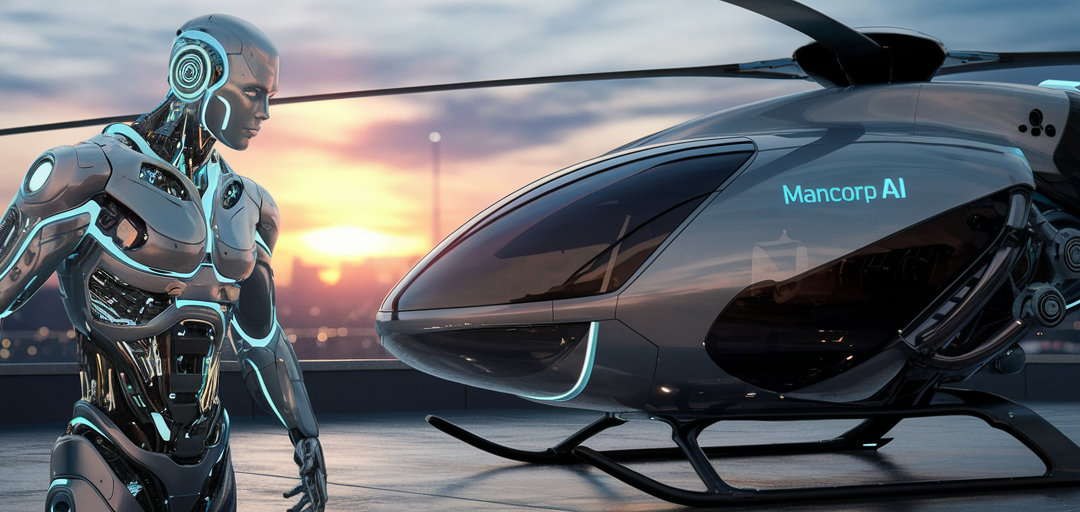A Comprehensive Analysis
Artificial Intelligence (AI) has emerged as the defining technology of the 21st century, revolutionizing industries, reshaping societies, and transforming the way humans live and work. As of 2025, AI is no longer a futuristic concept but a present reality that is driving innovation, enhancing efficiency, and solving complex problems across various domains. From healthcare and education to finance and urban development, AI is becoming an indispensable tool for progress. This report delves into why the future is now with AI, providing a detailed examination of its transformative impact, ethical considerations, democratization, and the trends shaping its trajectory.
The Transformative Power of AI Across Industries
Revolutionizing Business Strategies
AI has transitioned from being an emerging technology to a business necessity. In 2025, it is fundamentally reshaping business strategies by improving efficiency, enhancing decision-making, and elevating customer engagement. Nearly 90% of business leaders now consider AI integral to their company’s strategy (TSI, 2025). Companies that fail to integrate AI risk losing competitiveness and relevance in an increasingly data-driven world.
AI technologies such as machine learning, natural language processing (NLP), and robotics are enabling businesses to optimize performance and gain unprecedented insights. For instance, industrial products companies with high-quality data and standardized processes are leveraging AI to accelerate research and development (R&D), improve efficiency, and reduce time-to-market (PwC, 2025).
Generative AI: A Cornerstone of Innovation
Generative AI (GenAI) has become a transformative force, reshaping creativity and innovation. By enabling hyper-personalized customer experiences and revolutionizing scientific discovery, GenAI is driving progress across industries. In 2025, businesses in the U.S. are projected to invest over $67 million in generative AI, significantly higher than the global average of $47 million (Makebot.ai, 2025).
GenAI’s applications extend beyond experimental labs to enterprise and consumer domains. For example, multimodal AI systems that integrate text, image, audio, and video data are revolutionizing fields such as healthcare and autonomous driving. This hybrid approach is expected to account for 35% of AI use cases in 2025, up from 28% in previous years (Makebot.ai, 2025).
AI in Healthcare and Urban Development
AI is playing a pivotal role in healthcare by enhancing diagnostics, personalizing treatments, and improving patient outcomes. For instance, AI-driven analytics are helping farmers increase yields while minimizing environmental impact, reflecting its potential in sustainable agriculture (Makebot.ai, 2025).
In urban development, AI is enabling the creation of smart cities by optimizing waste management, energy consumption, and public transportation systems. AI-powered surveillance systems are improving security by identifying potential threats in real-time, ensuring safer urban environments (How and Why’s, 2025).
The Democratization of AI: Breaking Barriers
Expanding Accessibility
The democratization of AI is making advanced technologies accessible to businesses of all sizes, including small enterprises and startups. Traditionally reserved for tech giants, AI is now being adopted by a broader audience, thanks to user-friendly tools and platforms. This shift is enabling non-technical users to create and deploy AI-powered applications, fostering innovation in underserved communities (Dynamic Edge, 2024).
For example, tools like OpenAI’s GPT-4 and Microsoft Copilot are empowering users to harness AI for creativity and productivity. By 2025, 30% of organizations have already deployed generative AI solutions, while 46% are exploring its potential applications (Makebot.ai, 2025).
Reducing Bias and Fostering Diversity
Democratizing AI also helps address algorithmic bias by involving diverse voices in its development. A more inclusive approach ensures that AI solutions are culturally relevant and equitable. Local developers can adapt AI technologies to address specific regional needs, reducing barriers to entry and fostering healthy competition (Justia, 2025).
Ethical Considerations: Balancing Innovation with Responsibility
The Importance of AI Ethics
As AI becomes integral to various industries, ethical considerations are gaining prominence. The European Union’s AI Act, set to regulate high-risk AI systems in 2025, highlights the global push for responsible AI development. Ethical AI practices, such as explainable AI (XAI) and human-in-the-loop (HITL) approaches, are essential for ensuring transparency, fairness, and accountability (AI CERTs News, 2025).
Sustainability and Environmental Impact
AI development has environmental costs, particularly with the rise of large-scale machine learning models that consume significant energy. Sustainable AI practices, such as optimizing algorithms for efficiency and using renewable energy in data centers, are crucial for minimizing the environmental impact of AI innovations (AI CERTs News, 2025).
AI and the Future of Work
Human-AI Collaboration
The rapid growth of AI is reshaping the employment market by automating repetitive tasks and augmenting human capabilities. While concerns about job displacement persist, businesses are investing in workforce upskilling programs to help employees adapt to the changing nature of work. Human-AI collaboration is expected to play a central role in the workplace of the future, with AI managing routine tasks while humans focus on strategic initiatives (How and Why’s, 2025).
New Skill Sets
The demand for new skill sets, such as cybersecurity knowledge, data analysis, and AI development, is increasing. As AI continues to evolve, workers must acquire these skills to remain competitive in the job market (How and Why’s, 2025).
Conclusion: The Future is Now
The advancements in AI as of 2025 demonstrate that the future is no longer a distant horizon—it is here and unfolding before our eyes. AI is transforming industries, democratizing innovation, and addressing complex challenges with unprecedented efficiency. However, its rapid growth also necessitates ethical considerations, sustainability, and workforce adaptation to ensure that its benefits are equitable and inclusive.
The integration of AI into everyday life is not just a technological evolution but a societal revolution. As businesses, policymakers, and individuals embrace this transformative force, the potential for a brighter, more innovative future becomes limitless. The time to harness the power of AI is now.
References
- The Strategy Institute. (2025, January 13). The Role of AI in Business Strategies for 2025 and Beyond | TSI. https://www.thestrategyinstitute.org/insights/the-role-of-ai-in-business-strategies-for-2025-and-beyond
- PwC. (2025). 2025 AI Business Predictions. https://www.pwc.com/us/en/tech-effect/ai-analytics/ai-predictions.html
- Makebot.ai. (2025, January 20). Generative AI: Breakthroughs, Perspectives, and Future Trends for 2025. https://www.makebot.ai/blog-en/generative-ai-breakthroughs-perspectives-and-future-trends-for-2025
- AI CERTs News. (2025). AI Ethics in 2025: Balancing Innovation with Responsibility. https://news.aicerts.ai/news/ai-ethics-in-2025-balancing-innovation-with-responsibility/
- Dynamic Edge. (2024, December 9). The Democratization of AI in 2025. https://dynedge.com/ai-democratization-2025/
- Justia. (2025, February 24). The Democratization of AI: A Pivotal Moment for Innovation and Regulation. https://verdict.justia.com/2025/02/24/the-democratization-of-ai-a-pivotal-moment-for-innovation-and-regulation
- How and Why’s. (2025, March 16). The Future is Now: How AI and Innovative Technologies Are Transforming 2025. https://howandwhys.com/the-future-is-now-how-ai-and-innovative-technologies-are-transforming-2025/
Our mission is to build a united community that embraces the evolution of artificial intelligence collectively, recognizing that there is strength in numbers. At MANCorp AI, we believe that our collective progress defines our future.


